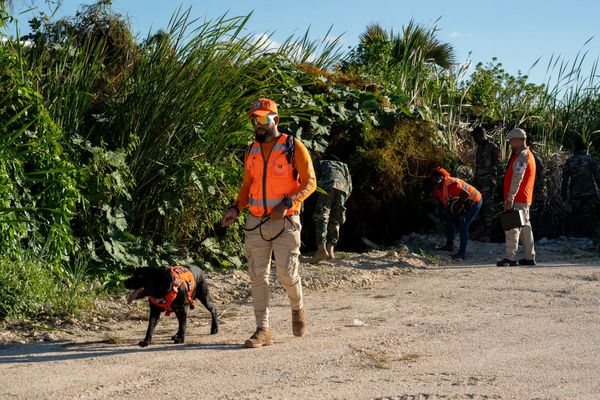
What are cancer vaccines?
Cancer vaccines are a form of immunotherapy. Unlike vaccines that protect from an infection, such as the Covid-19 jab, cancer vaccines treat people who already have the disease. They are designed to help the patient’s immune system recognise and then kill cancer cells – and prevent them from coming back.
How are cancer vaccines made?
The jabs are custom built for each person, typically in just a few weeks. To make them, a sample of a patient’s tumour is removed during surgery, followed by DNA sequencing and in some cases the use of artificial intelligence. The result is a personalised anti-cancer jab specific to that patient’s tumour.
How do they help fight cancer?
The cancer vaccines work by sending an instruction or blueprint to the patient’s cells to produce an antigen or protein that can distinguish cancer cells from normal cells. The jabs stimulate the immune system to act. The immune system makes antibodies that can recognise and attack the harmless versions of the disease. Once the patient’s body has made these antibodies it can recognise the disease if returns.
What types of cancer can they treat?
Scientists are studying many different types of cancer vaccines and how they might work in different forms of cancer. More research is needed to get a full picture of how well the vaccines work and which cancers they could treat. Experts believe they could be effective in a range of cancers, including but not limited to colorectal, lung, bladder, pancreatic and kidney.
Doctors have also begun trialling the world’s first personalised mRNA cancer vaccine for melanoma. Experts hailed its “gamechanging” potential to permanently cure the skin cancer. A phase 2 trial found that the vaccines dramatically reduced the risk of the cancer returning in melanoma patients.
How can people access cancer vaccines?
Research is still at an early stage, so the jabs are mainly available as part of clinical trials. The NHS is launching a scheme that will give thousands of patients in England access to cancer vaccine trials.
What is the Cancer Vaccine Launch Pad?
The NHS scheme in England is the first of its kind worldwide. It aims to recruit thousands of cancer patients, with a matchmaking service putting them into clinical trials of the jabs that could help them.
When will it begin recruiting?
It already has. The first NHS patient to join the Cancer Vaccine Launch Pad is Elliot Pfebve, a 55-year-old lecturer who had no symptoms and was diagnosed with colorectal cancer after a routine health check.
How did doctors create this personalised vaccine?
First, Pfebve had surgery to remove his tumour, followed by chemotherapy. His personalised vaccine was created by analysing his tumour to identify mutations specific to his own cancer. He then received his jab via an infusion at University Hospitals Birmingham NHS foundation trust, one of several sites taking part in a BioNTech colorectal cancer vaccine trial. It was designed with the same mRNA technology used to create the Pfizer/BioNTech Covid vaccine.
How is the patient doing?
The principal investigator for the trial in Birmingham, Dr Victoria Kunene, said it was too early to say if the patient had been cured completely, but said she was “extremely hopeful”. “Based on the limited data we currently have of the in-body response to the vaccine, this could prove to be a significant and positive development for patients, but more data is yet needed and we continue to recruit suitable patients to the trial to establish this further,” she said.
How can I sign up?
The NHS has already enlisted dozens of patients to its Cancer Vaccine Launch Pad and will now accelerate recruitment, with thousands being offered access to cancer vaccine trials each year. Cancer patients can talk to their GP about whether they may be eligible to join the trials.
How significant is the arrival of cancer vaccines?
Vaccines have revolutionised medicine, protecting millions of people from measles and mumps, polio and coronavirus. They have also wiped out smallpox, one of the deadliest diseases in human history. Now experts believe they can form part of the toolbox needed to fight off cancer for good. They will not replace surgery, chemotherapy or radiotherapy any time soon but could play a key role in immunotherapy, the fourth weapon against cancer.
There are many challenges, and making personalised jabs for individual patients takes time, but the hope is that the process could speed up in future. Doctors and scientists have been working on cancer vaccines for decades but they have now reached a point where they are seeing real benefits for patients.







